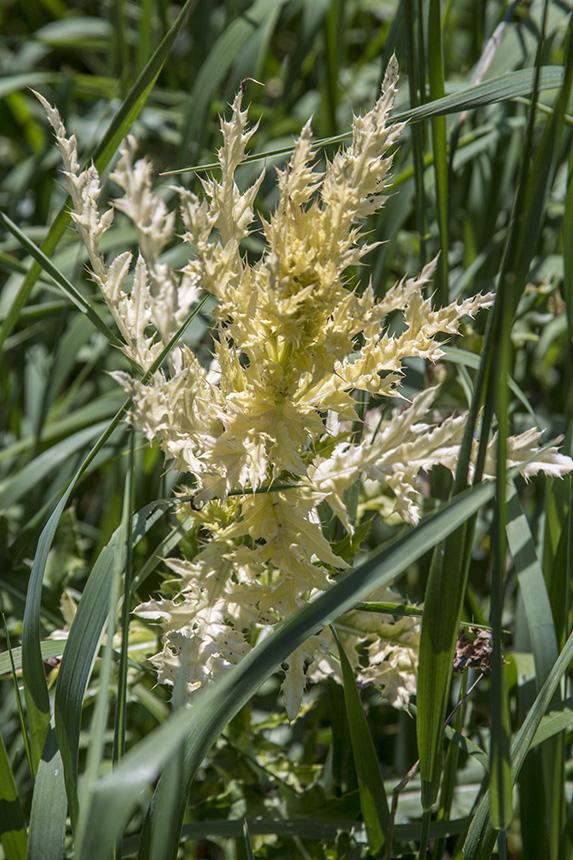Visitors to Minnesota’s natural places will occasionally come across a stand of Canada thistle with a few plants that are whitened at the top, appearing bleached. The discoloration is caused by the bacterium Pseudomonas syringae pv. tagetis. It has been called “White‐colour Disease of Canadian Thistle,” “apical chlorosis of Canada thistle,” and “Bacterial Speck”, but it has no widely-accepted common name. It is often referred to in scientific literature as Pst.
Outside of a laboratory, a bacterium is recognized only by the symptoms it produces in its host. Pst produces the substance tagetitoxin, which blocks the production of chloroplasts, preventing photosynthesis. This results in whitened plant growth (chlorosis) on only the upper portion of the plant, stunted growth, fewer shoots, and inhibition of flowering. Pst infects plants in the Aster family, including Canada thistle, common dandelion, common sunflower, common ragweed, giant ragweed, Jerusalem artichoke, and some other plants not found in Minnesota.
Researchers at the University of Minnesota conducted a study in 2002 to assess the viability of using Pst as a biological control agent for Canada thistle.

